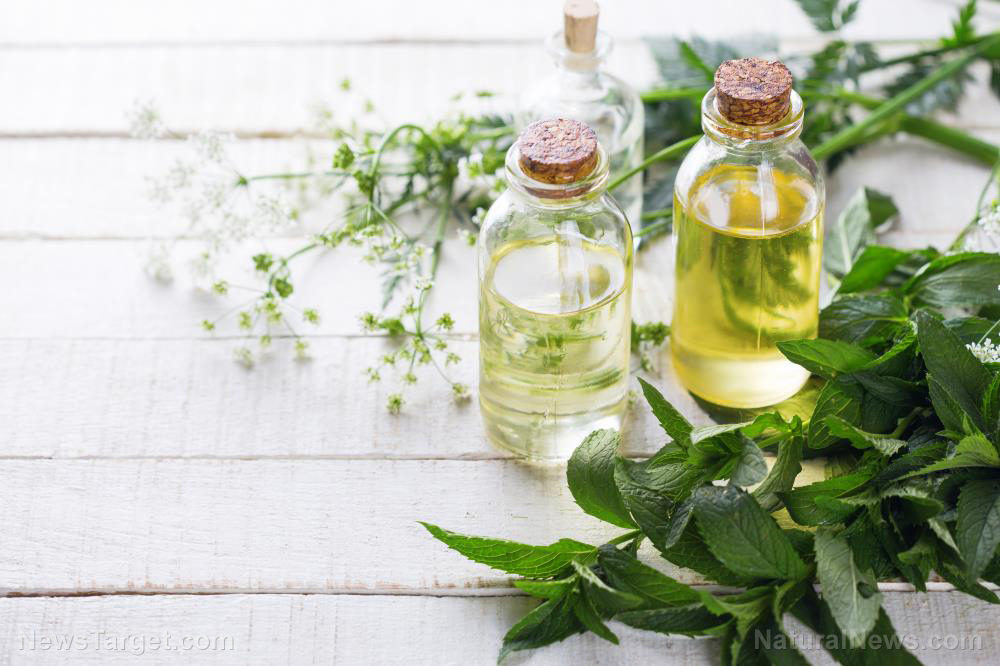Waxflower plants found to have potential antimicrobial properties
12/26/2019 / By Evangelyn Rodriguez

Etlingera is a genus of tropical plants that belong to the Zingiberaceae or ginger family. These plants have short inflorescence shoots and fruits that ripen underground. Etlingera plants are known perennials that produce circlets of flowers with bright red petal-like structures. According to researchers from Noakhali Science and Technology University in Bangladesh, the essential oils derived from these Etlingera species can be used as natural antibiotics. In their study, which appeared in the Journal of Medicinal Plants Research, they summarized the characteristics of these essential oils and focused on these oils’ chemical composition and antimicrobial properties.
The essential oils extracted from medicinal plants are extensively used as natural resources for the prevention and treatment of a variety of diseases. According to studies, every part of medicinal and aromatic plants from the genus Etlingera yield high amounts of essential oils. These oils are widely used as traditional medicine in Southeast Asia.
Cases of antibiotic resistance are rising at an alarming rate and many infectious diseases have become difficult to treat. Fortunately, recent studies have found evidence of the essential oils from different Etlingera species possessing promising antimicrobial properties. These properties can be used to treat many infectious diseases and address antibiotic resistance.
The researchers believe that extensive studies on the biological activities of Etlingera essential oils may lead to the identification of new compounds which can be used as antimicrobial agents in modern medicine, as well as in the cosmetics and pharmaceutical industry.

Etlingera species with antimicrobial activities
When studying plants from the genus Etlingera, researchers often focus on the chemical composition, antioxidant capacity and antimicrobial activity of their essential oils. While the potency of these plants vary in different aspects, studies all agree that Etlingera plants possess a wide collection of beneficial phytochemicals, such as phenylpropanoids, plant aldehydes, plant phenols and monoterpene hydrocarbons. (Related: Try these natural antibiotics that helps fight off infection.)
Here are some Etlingera plants whose essential oils have been scientifically proven to have antimicrobial properties:
- E. eliator — Commonly known as torch ginger, the essential oil of E. eliator is effective against bacteria like Staphylococcus aureus and Bacillus cereus, and the fungi Candida albicans and Cryptococcus neoformans.
- E. sayapensis — According to a study published in the Asian Pacific Journal of Tropical Medicine, the essential oil from its rhizome is rich in oxygenated monoterpenes and can prevent the growth of a wide spectrum of microorganisms, including methicillin-resistant S. aureus (MRSA), B. subtilis, Shigella sonnei, Vibrio parahaemolyticus, C. albicans and C. parapsilosis.
- E. brevilabrum — Like E. sayapensis, the essential oil derived from the rhizome of E. brevilabrum has high antibacterial activity as well as antioxidant activity. E. brevilabrum essential oil is also effective against S. aureus, MRSA and the bacterium Proteus mirabilis which causes UTI.
- E. maingayi — In a study published in Food Chemistry, researchers compared the biological activities of five Etlingera species. They reported that extracts from the leaves of E. maingayi have the highest ferrous-ion chelating ability and beta-carotene bleaching ability. E. maingayi extracts also showed antibacterial activity against Gram-positive, but not Gram-negative, bacteria.
- E. pavieana — Research suggests that the essential oil of E. pavieana has anti-inflammatory, antioxidant, anti-atherogenic and antimicrobial properties. In particular, extracts from its leaves are active against Escherichia coli, Pseudomonas aeruginosa, V. parahaemolyticus, Salmonella typhimurium and the bacterium that causes tuberculosis, Mycobacterium tuberculosis.
Essential oils are more often used for aromatherapy, but they can also serve as natural antibiotics. These oils are some of the richest sources of beneficial plant compounds which can exert a positive influence on your physical and mental well-being. However, some oils may be too potent and need to be diluted with a carrier oil prior to use. To avoid unwanted reactions such as skin irritation, read up on essential oils and consult your health care provider before using any.
Sources include:
Submit a correction >>
Tagged Under:
alternative medicine, antibiotic resistance, Antimicrobial, disease treatments, essential oils, herbal medicine, Herbs, infectious diseases, natural antibiotics, natural cures, natural medicine, phytonutrients, plant medicine, remedies, research
This article may contain statements that reflect the opinion of the author





















